Citrus Gall Wasp
/in Articles, Gardening, Pest Control/by Georgios Antoniou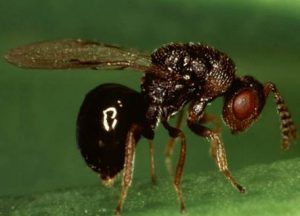
Female Citrus Gall Wasp laying eggs
Many of our more determined garden pests are not native to Australia but the Citrus Gall Wasp (Bruchophagus fellis) is definitely an Australian grown garden variety pest. Initially, this native wasp was partial to Queensland and northern New South Wales and its favoured congregation was native finger limes. But the citrus gall wasp has quickly adapted to the broader variety of citrus fruits. Since the 1990’s it has successfully journeyed from Queensland, through NSW and can now be found as far south as Melbourne where it is virtually rampant on the iconic back yard lemon tree.
Adult citrus gall wasps are rarely seen as they are less than 3mm in size. The adults are meager flyers but can be windblown from other citrus trees nearby. The adult wasps mate in early to late spring when the female implants her eggs in the citrus tree that she herself emerged from just days before. Often the larvae are already present in newly purchased citrus trees in spring. The wasp larvae grow within the soft stem tissue for 9 to 12 months until they too pupate and emerge as adult wasps the next year.
Plants affected: All citrus trees, particularly lemons and grapefruit.
Damage Caused:
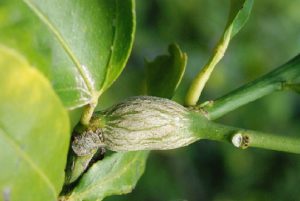
Wasp larvae growing inside the stem
The wasp larvae grow within the citrus stems until late summer when gardeners begin to notice unpleasant galls appearing on their trees. These galls or calluses are formed in response to the presence of the feeding larvae. Galls cannot be ‘cured’ or reversed. Old galls are unsightly but are also empty as the adult wasp will have left through the tiny exit holes. Developing galls can be removed but this may also mean the forfeiture of developing fruit at the end of the infected stem. Citrus gall is more damaging to younger citrus trees than older trees.
Control Methods: Controlling citrus gall wasp can be problematic but damage can be minimized by:
- Avoiding high nitrogen fertilizer in spring as this promotes soft sappy growth – just perfect for the egg laying stage. Feed trees in late autumn and early winter as an alternative.
- Removing all newly formed galls that don’t show signs of exit holes before the end of winter. Old galls have already been exited.
- Hanging yellow sticky traps inside infested trees from mid-August to trap emerging adult wasps. The yellow is an attractant and the sticky traps are impossible for the wasp to escape. Do not leave on after November as the wasps are no longer about and you may
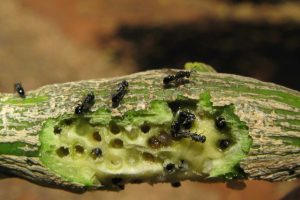
Citrus Gall Wasp larvae hatching
unintentionally trap valuable insects and even small birds.
- Destroying plague-ridden stems by burning or soaking in water for a fortnight then bagging.
If you need help dealing with these ghastly creatures please don’t hesitate to call Jim’s Mowing on 0800 454 654 or book online for a free quote.
7 Household Products That Kill & Control Weeds
/in Articles, Gardening, Pest Control/by Georgios Antoniou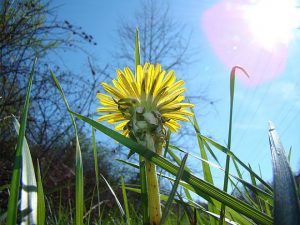
We’ve seen it too many times, beautiful flowers trying to grow and pesky weeds coming a long and destroying the beauty with their uncontrollable hunger for destruction. Luckily, you don’t have to spend a lot of money on weed control. These are 7 household products you can use to kill or control weeds in your garden.
- Shower curtains. Next time you splurge for a new shower curtain, don’t just throw your old one out, use it to control weeds in your backyard! Simply place the shower curtain under mulch to prevent weeds from growing through.
- After you throw your next party and have an extra half of bottle of vodka laying around, try using it to kill weeds. Mix 30ml Vodka with a couple of drops of dish soap and 2 cups water in a small spray bottle and spray the mixture directly on to the weed leaves until it runs off. Do this when it’s sunny, because the purpose of the mix is to dehydrate the weeds in sunlight and it may not be as effective in the shade.
- Bleach is too harsh for your garden, but if you have weeds growing up through cracks in footpaths or walkways, you can try pouring just a bit of bleach directly on to them to kill the weeds.
- Salt is another household item that is great for ridding your footpath of the pesky weeds that pop up in between cracks, it always works great to kill unwanted grass that springs up. Boil 2 cups water mixed with 1 cup of salt and pour the boiling mix directly on the weeds.
- Carpet pieces.If you’ve just redone your carpet and have some scraps laying around, use them under straw or mulch in your garden for a weed-less path. Place the scraps upside down under mulch. You can also use the smallest pieces for actual mulch in a veggie garden.
- Baking soda.As if this miracle product didn’t already have enough uses, now we know we can use it for a safe, effective way of controlling weeds. Sprinkle baking soda by the handful onto concrete and sweep into cracks where weeds are growing. The powder will make it much drier and harder for the weeds to grow, basically snuffing them out.
- 2-litre bottles.If you do choose to use herbicides, try using bottles to make a more controlled application. Single out the weed you want to kill and cut a 2-litre bottle in half, place the upper half of the bottle over the weed. Aim the wand in to the opening of the bottle and spray. Doing this protects all of the plants you DON’T want to harm while you’re spraying.
Call Jim’s Mowing on 0800 454 654 for all of your gardening needs or simply Book Online for a free, no-obligation quote!
The Scourge Of Aphids And How To Manage Them
/in Articles, Gardening, Pest Control/by Georgios Antoniou
We’ve all heard of them. We all hope they never rear their destructive heads. Until the one day you walk out into your beautiful garden to find it teeming with life, not the stoic green plants you have come to cherish like a member of the family but the minuscule leaf dwelling bugs that are the plague of any home gardener’s life.
The problems aphids present are numerous. They feed on your plants and literally suck the life right out of them causing them to lose that healthy green glow. Aphids produce a waste product called honeydew. It is a sweet, sticky substance that can become a danger to your garden as well. The sticky waste can mold and turn black which in turn can build up and block light from reaching your plants. Aphids reproduce quickly, a few days is enough to produce a new generation. A handful of Aphids one day can turn into a swarm that terrorizes your garden in just a weeks’ time.
Leaving this problem unchecked ensures it will get worse and could ultimately lead to the death of the entire garden. It’s important not to delay, what may seem like a mere annoyance at first can quickly turn into a garden threatening problem.
So how do we combat these little terrors? You could turn to pesticides but if this is a vegetable garden pesticides may not be an option. Even if the garden is strictly for flowers there are drawbacks to using pesticides. There is always the risk that pesticides could kill the bugs that are helping keep the aphid population low. Because of this, spraying pesticides could result in even more garden destruction than before.
A natural remedy may be the best option in this case. Aphids have natural predators whose interests for this short time align with yours. Encouraging lady bugs to hang around your garden is one natural remedy. Ladybugs use pollen as a food source. You can increase the ladybug traffic by planting cilantro, dill, geraniums, and tansies. These are all plants that Ladybugs would be attracted to.
Try Neem oil derived from the Neem Tree. It has both insecticide and fungicide properties, and systemic benefits (that is the plant can absorb it without harm and so can control insects even without direct contact).
“Organic Gardening” magazine also recommends their “Kitchen insect spray” – made by combining a garlic bulb, a small onion, and 1 teaspoon of cayenne pepper in a food processor/blender. Process into a paste and add about 1 litre of water then steep for 1 hour. Strain the mixture through a cheesecloth, then add a tablespoon of dishwashing liquid and mix again. This will keep for up to 1 week in the fridge.
An added problem is that other insects enjoy this sweet honey that aphid’s secrete. Ants in particular are fond of the sweet waste so it is natural to think they will set out to protect the producers of their sweet treat. The simplest way to deal with your garden ant problem is by using a mixture of sugar (powdered preferable but not necessary) and borax and leave in tiny dishes around the ant infested area. The ants will devour the sugary treat unaware of the deadly (to ants not us) borax lurking within the mixture and when they return their sweet prize to the nest the borax will run its course. Small amounts of Borax are found in some teeth whitening formulas so rest assured, you and your family are not in danger when using this sugar/borax method.
With just a few easy to follow steps you can ensure your garden stays aphid free and continues producing those favorite foods you love to grow yourself and that those beautiful plants will thrive all season long.
Jim’s Mowing can help you with all of your gardening requirements, just call on 0800 454 654 or book online for a free, no-obligation quote!
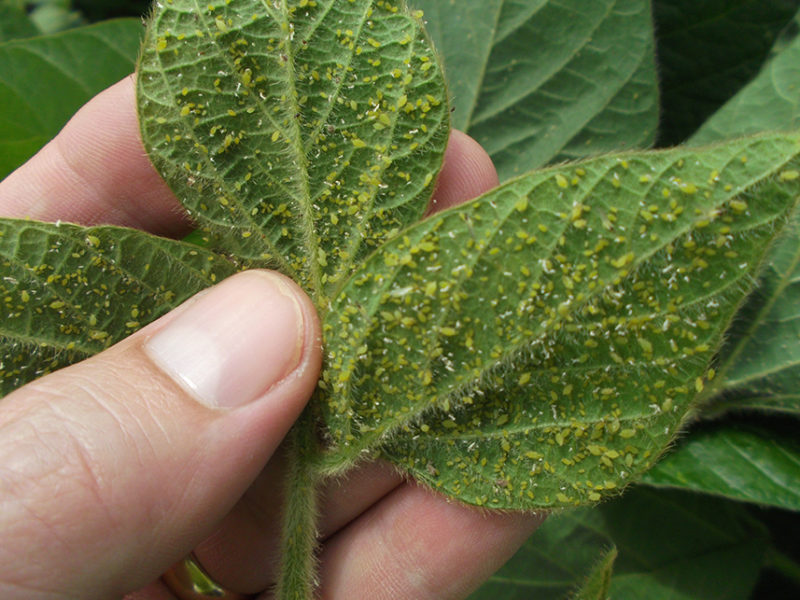
How To Combat Fruit Fly
/in Articles, Gardening, Pest Control/by Georgios Antoniou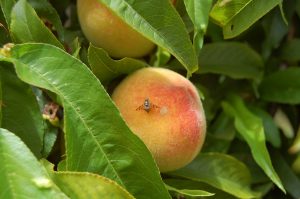
Yes you know them, those annoying little flies that are not only destructive, a nuisance but also unsanitary as they sometimes carry harmful bacteria.
In Australia, fruit flies are a cause of great distress and annoyance to a lot of home garden owners as they are known to destroy a range of nurtured vegetable and fruit crops within a short space of time.
Because the entire life cycle of the fruit fly takes between 1-2 weeks, they are known to increase rapidly in number with the female fruit flies laying up to 500 eggs at a time in favorable breeding areas or grounds.
How then can the infestation of fruit flies in our gardens be combated especially as they seem to multiply before our very own eyes?
1. Destruction of feeding and breeding ground (source of attraction)
Fruit flies are majorly attracted to fruits and vegetables that are overripe. Care should be taken to pick out fruits and vegetables as soon as they become ripe. Rotten fruit, vegetable or plant material should not be left in the garden.
A clean garden free of debris is also important as fruit flies are known to live through the winter within them.
Finally, engage in proper compost management as fruit flies are greatly attracted to compost. For this reason, ensure that compost is at all times aerated and possibly contained or covered with a lid so as to reduce the fruit flies.
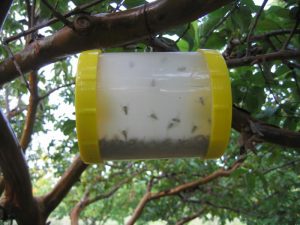
Pheromone Trap Fruit Flies
2. Using a pheromone trap
The pheromone trap is a successful form of mating disruption thus impeding egg-laying by the female fruit flies.
The concept behind the pheromone trap is that the male fruit flies are attracted to a powder containing the pheromone which is a female attractant. With the pheromone on the bodies of the male fruit flies, other males are attracted to them hence mating process is disrupted and egg-laying hindered. The effectiveness of the pheromone traps is in its ability to travel over long distances.
3. Use of protein-based baits
Because fruit flies need protein rich food to mature and sustain them, protein based baits (solution of protein and insecticide in water) are used to attract both male and female.
The protein-based bait is spot sprayed every two meters apart for effectiveness. After feeding on the droplets of the dispersed product, the fruit flies are killed. This method is intended for fruit fly control and the baits need to be changed every week.
4. Exclusion method
This method of fruit fly control using exclusion bags or mesh over ripening fruits prevents the female fruit fly from getting to and laying her eggs in the fruit.
It is more effective to combine this method with the use of traps.
In conclusion, educate your neighbors on these methods of combating fruit flies such that with a wider area of kill, your fruit, vegetables and indeed whole garden is fruit fly free. And of course, if Jim’s Mowing and Gardening team can help maintain your garden, as a one-off clean up or regular visits, don’t hesitate to call on 0800 454 654 or book online.


